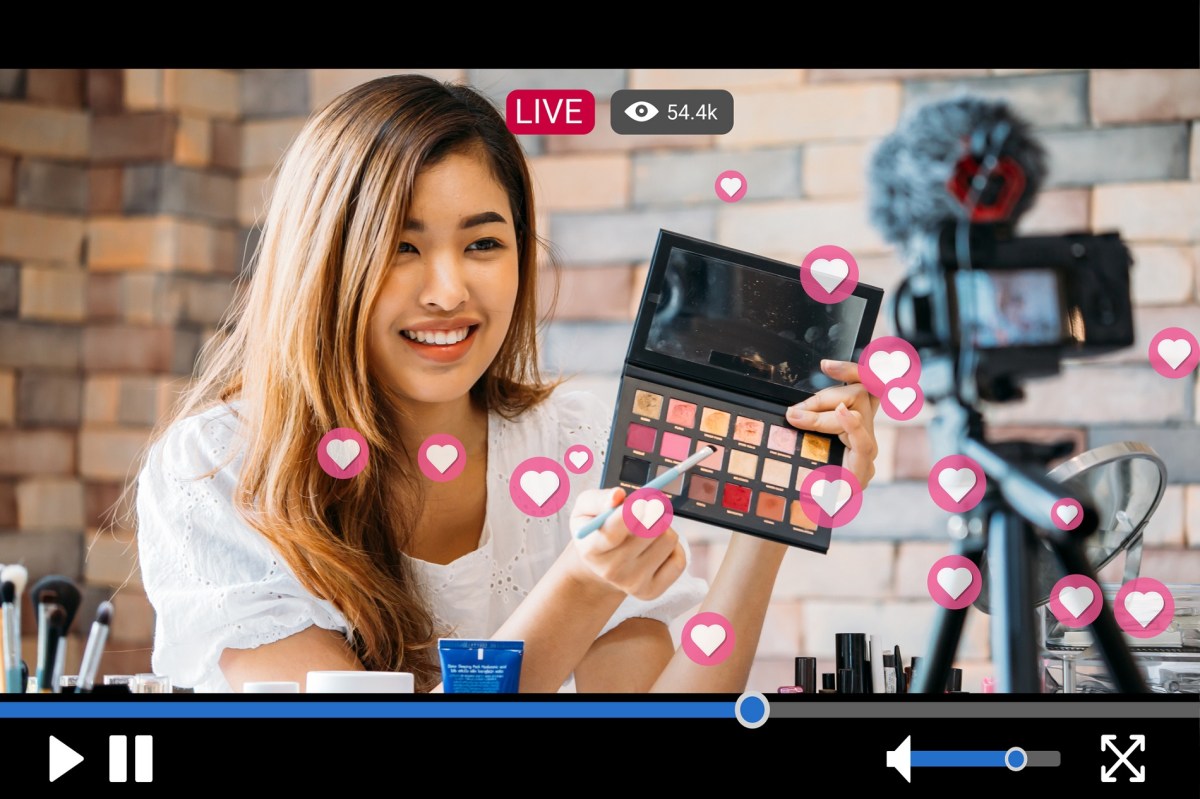With more than 3.9 billion social media users worldwide, it’s becoming easier to market directly to consumers. In many ways, the staggering growth in social media users has fuelled the rise of influencer marketing, as brands seek to broaden their reach. Influencers are quickly gaining the trust and loyalty of consumers. According to a 2019 study from Rakuten Advertising, 87 percent of shoppers admit that they’ve been prompted to make a purchase by an influencer.
Promoting products and driving sales are an influencer’s most valuable skills. Influencers are increasingly perceived by their followers as personal shoppers, directing them to stores and websites to shop their look.
However the evolution of social commerce is now playing a key role in the democratisation of e-commerce. The blend of e-commerce and social media best practices is not only changing the retail industry but it’s also an opportunity for influencers to broaden their remit. More and more influencers are leveraging social commerce to capitalise on their social media status and their product selling power to launch a retail brand of their own.
Lifestyle and fitness influencer Revie Jane (221K followers), stylist influencer Tina from Trash to Treasured (121K followers) and fitness influencer Tammy Hembrow (12.1m followers) are only a few examples of Australian influencers who have set up e-commerce businesses recently.
The evolution of social commerce over the past 12 months has spurred influencers to convert their profiles into business accounts and compete with well-established retailers.
Influencers — the new kids on the retail block
Influencers typically spend years building their profile, growing their following, earning the trust and respect of their followers, creating compelling content to promote products of different brands on their social media platforms. It means they already have a very captive audience they have apersonal connection with. There are few retailers who can make that claim. As such, social commerce represents a very lucrative opportunity for influencers.
Building on the trust and the connection with their audience, influencers can easily gather research about a product before it’s even developed or created. Through features like interactive polls and story Q&As on Instagram, influencers can gather a lot of valuable and first-hand data that retailers aren’t usually privy to. This not only helps to inform a product design that will appeal to their audience, but it’s also a process that already puts the marketing train in motion.
The upper hand
Just by reaching out to followers for their thoughts, ideas or feedback about a product that’s not even developed yet, influencers are already creating and nurturing their sales funnel. In fact, an influencer already has buy-in from a follower who feels like they have contributed to the development of a product.
It’s also easier for ‘influencers-turned-retailers’ to generate positive product reviews as they already established trust. Furthermore, the world of influencers, especially for nano and micro influencers, is a very close knit community that supports one another. As such, influencers are very likely to tap into their friendships within the influencer community for positive reviews and recommendation, further extending their reach.
The risks of building a brand as an influencer
With the updated code of ethics by the Australian Association of National Advertisers (AANA) whereby influencers are obliged to disclose their commercial relationships in a clear, upfront and easily understood manner, things can get confusing for followers. As it’s becoming increasingly clearer for consumers to identify product placements or paid for collaborations with retailers and brands, the lines become blurry when influencers promote their own products.
For a long time influencers have been perceived as promoters rather than entrepreneurs and consumers can become sceptical when influencers start to do product placements for their own brand without the obligation to disclose it as a promotion for example.
Celebrity influencers in the beauty industry face a lot of backlash over this particular practice. Reality TV mogul Kim Kardashian has been criticised by fans for filming skincare routines or make-up tutorials using only products from KKW Beauty. Such practice can cost influencers their credibility, followers and the trust of their audience. While traditional retailers can often be perceived as being too sales-driven, at least there’s no confusion.
The future of retail
Retailers need to acknowledge that the retail industry is changing and that influencers are one of the key players powering that change. Their relatable personalities and niche fan bases combined with the possibilities of social commerce, are key to helping retailers cut through a consumer-driven world that’s saturated with similar products. However, in the future, retailers will not only be harnessing the power of influencers by partnering with them for product placements, but they will also be competing with them for market share.
Alex Frolov is CEO and co-founder of HypeAuditor.

